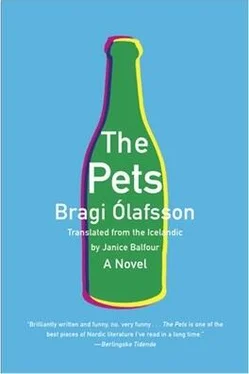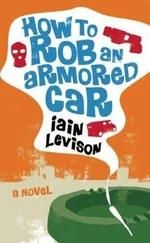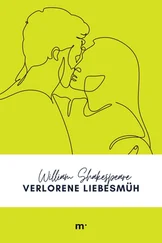Bragi Ólafsson - Pets
Здесь есть возможность читать онлайн «Bragi Ólafsson - Pets» весь текст электронной книги совершенно бесплатно (целиком полную версию без сокращений). В некоторых случаях можно слушать аудио, скачать через торрент в формате fb2 и присутствует краткое содержание. Год выпуска: 2008, Издательство: Open Letter, Жанр: Современная проза, на английском языке. Описание произведения, (предисловие) а так же отзывы посетителей доступны на портале библиотеки ЛибКат.
- Название:Pets
- Автор:
- Издательство:Open Letter
- Жанр:
- Год:2008
- ISBN:нет данных
- Рейтинг книги:5 / 5. Голосов: 1
-
Избранное:Добавить в избранное
- Отзывы:
-
Ваша оценка:
- 100
- 1
- 2
- 3
- 4
- 5
Pets: краткое содержание, описание и аннотация
Предлагаем к чтению аннотацию, описание, краткое содержание или предисловие (зависит от того, что написал сам автор книги «Pets»). Если вы не нашли необходимую информацию о книге — напишите в комментариях, мы постараемся отыскать её.
Pets — читать онлайн бесплатно полную книгу (весь текст) целиком
Ниже представлен текст книги, разбитый по страницам. Система сохранения места последней прочитанной страницы, позволяет с удобством читать онлайн бесплатно книгу «Pets», без необходимости каждый раз заново искать на чём Вы остановились. Поставьте закладку, и сможете в любой момент перейти на страницу, на которой закончили чтение.
Интервал:
Закладка:
Several customers had noticed that trouble was brewing — one of them had stood up to be ready for trouble — and the other barmaid started calling for Kristjan. The girl who had been offered the money seemed determined to stay calm, although she was clearly offended. She watched as he left the place, bumping into the corner of a table on the way and swearing coarsely, both in English and Icelandic. He went as far as the corner of Snorrabraut and Laugavegur before he stopped and put the money back in his wallet. Then he rushed across Snorrabraut, though the traffic lights were red, and slowed down as he approached the corner of Laugavegur and Baronsstigur.
17
The familiar sound that comes from loudspeakers when the needle touches the black vinyl adds to the good feeling I have that this little flat, on Grettisgata, is my home, and that now I am back safely after being away. Maybe I wasn’t away very long, but it was long enough to look forward to coming home, which isn’t strange when one has bought a collection of books, CDs, and videos and is dying to switch on the stereo in the living room. I get a wonderful shiver when the first tones of “Lonely Fire” pierce the heavy, two-week-old air, to which I have added the smoke from one of the Hamlets that I bought at Heathrow.
I wonder whether I should perhaps have invited Tomas up for a cup of coffee — he looked so cold out in the garden — but I decided against it. He must understand that I am not going to put myself out for someone, as my grandmother would have said, when I have just arrived home from abroad. I feel I need to spend some time alone in my flat — listen to a little music and even lie down on my bed — before I start entertaining others.
The living room window seems to be frozen shut when I try to open it. I don’t dare to press hard on the single sheet of glass, so I decide to go out into the garden to see if I can scrape away the ice from the outside. While I’m putting on my shoes, I put my hand into my shirt pocket automatically — as I usually do before going outside, to make sure that I have some change or a credit card with me — and find something unexpected. Before I pull it out of my pocket, I realize what it is: Armann Valur’s glasses.
“I don’t believe it!” I say out loud to myself. It’s exactly the last thing I need at the moment. I remember straight away that I put them into my shirt pocket when I passed the food tray to the flight attendant, but can’t understand why on earth Armann didn’t miss them when he woke up.
I try not to think of where Armann is at this moment. No doubt he has made them turn everything on the plane upside down. If his panic — flapping his arms in front of the airport official — was anything to go by, it didn’t seem likely that he would leave the airport without his glasses. Besides, I know now, as I am holding on to the thick-lensed glasses, that he has considerable need of them. The only thing I can do is call him or try to contact someone at the airport; I am almost sure that Armann is still there.
I can’t have been the one who decided to put the glasses in my pocket; someone else must have made the decision.
According to the telephone directory, Armann could almost be considered my neighbor; he lives on Raudararstigur. I am pretty sure I have the right man: Armann Valur Armannsson, Icelandic linguist. His phone rings four times before the answering machine clicks in. I must admit that I am quite surprised that he uses such technical devices, and I’m even more surprised when his message is repeated in English: “This is Armann Valur speaking. I am not in at the moment. Please leave your name and telephone number and I will see what I can do.”
It’s difficult to say if the last phrase is meant to be a joke or not and I hesitate for a moment before leaving a message:
“Hello Armann, this is Emil speaking, you probably remember me from the plane. I hope I haven’t caused you too much inconvenience. I was just coming home a few minutes ago and I spotted that I’ve got your glasses. I am most terribly sorry, of course I didn’t intend to. .” I don’t get any further: a shrill beep informs me that my time has run out. I immediately regret having hoped that “I haven’t caused him too much inconvenience.” Obviously the inconvenience that I caused him was “too much”: I was responsible for him missing the Fly Bus into town and no doubt prevented him from buying some Opals in the duty-free store by depriving him of his sight. I had, at least, not made his day , although I realize that he probably isn’t familiar with the expression. I can’t imagine using the verb “to spot” will improve his opinion of me either. I call the answering machine again and ask Armann to contact me concerning the glasses, I’ll be at home this evening. I rush to give him my telephone number before the beep cuts me off.
I put the heavy glasses down on the table in the living room and start unpacking my suitcases. I line up the wine on the right hand side of the table, place the cigarettes and cigars in front of the bottles, and pile up the books (all eight of them), the video cassettes (of which there are seven), and the CDs (there are thirty six of them, not counting those I bought for Saebjorn and Jaime) at the other end of the table. I have to laugh when I look at Armann’s glasses in the center of the table, and I can’t make up my mind whether this ridiculous mistake, this terrible misfortune, is worse for Armann or me. At least there is no special good fortune involved; I realize that we are about to meet again, the linguist and I.
I light a cigarette, open a warm beer from the duty-free pack, and go into the bedroom to have a look at my emails. Greta comes to mind. I wonder if I’ll ever get to know her well enough to receive emails from her. At this moment she is probably telling her daughter about the double-decker buses in London and how the people drive on the wrong side of the road, but she won’t mention the man she met on the plane on the way home and again on the bus, nor the fact that she intends to meet him this evening once the little one has fallen asleep.
There are about twenty emails waiting for me on the computer: several from Saebjorn and Jaime; one from Jonas, my friend in London, that was written today (no doubt asking, for the sake of politeness, if I’ve arrived home safely); two from Vigdis; a few from some magazines I subscribe to; and all sorts of junk mail.
I feel I need to cheer myself up and decide to make instant coffee with whisky. When I go into the kitchen and feel how heavy the air still is, I push the kitchen window open wider.
18
He was half way across Baronsstigur when he suddenly turned round and went back in the direction of Snorrabraut. He pulled down his hood and stood for a little while by a shop window, in front of a dummy which was dressed like a teenager. He looked at his reflection in the glass, ran his fingers through his thick hair, and spat into the palm of his hand, so that he could flatten his hair a bit on one side. Then he carried on at a quicker pace and went into a clothing shop; the mannequins in the window stood stark naked and were spotlighted in the cold darkness that now enveloped the city. He undid the zip on his anorak, walked straight up to the counter on the right, and asked a neat, dark haired man in his forties if he could keep his plastic bag while he had a look around. The man took the plastic bag without uttering a word and when the bag owner had turned his back to gaze around the spacious shop floor, the dark haired assistant went over to his colleague at one of the cash registers, pointed out the customer to him, and said something that made him smile. They watched him walk into a department on the left, come out again, and look at himself in the full-length mirror on the wall by the entrance, but when he came back in the direction of the counter they looked away and pretended to be busy with some imaginary tasks.
Читать дальшеИнтервал:
Закладка:
Похожие книги на «Pets»
Представляем Вашему вниманию похожие книги на «Pets» списком для выбора. Мы отобрали схожую по названию и смыслу литературу в надежде предоставить читателям больше вариантов отыскать новые, интересные, ещё непрочитанные произведения.
Обсуждение, отзывы о книге «Pets» и просто собственные мнения читателей. Оставьте ваши комментарии, напишите, что Вы думаете о произведении, его смысле или главных героях. Укажите что конкретно понравилось, а что нет, и почему Вы так считаете.











